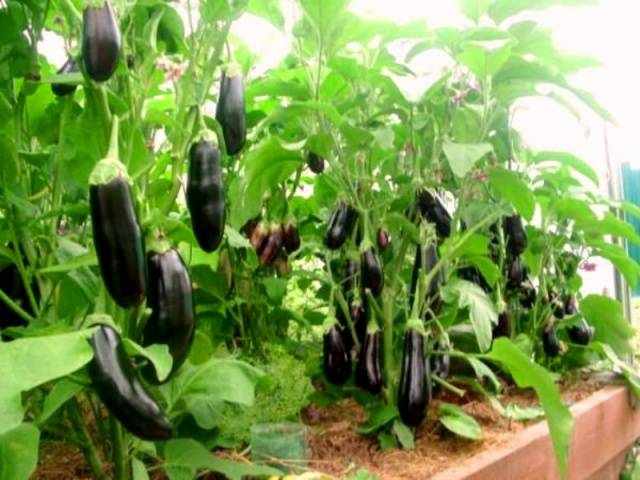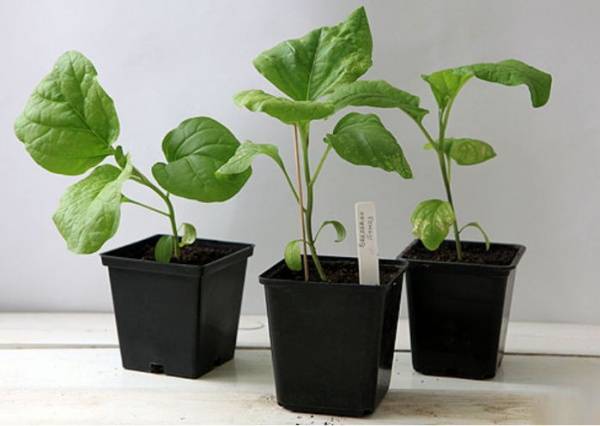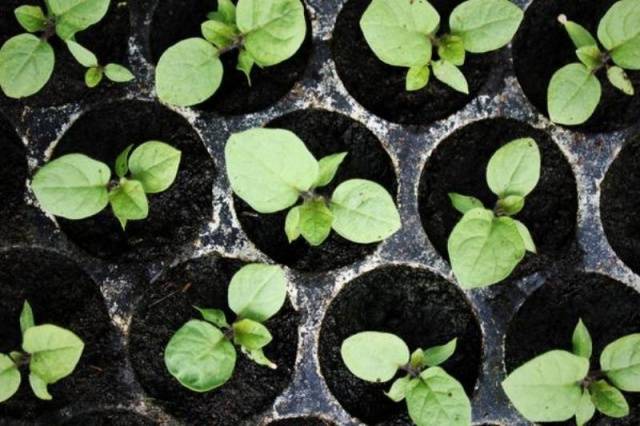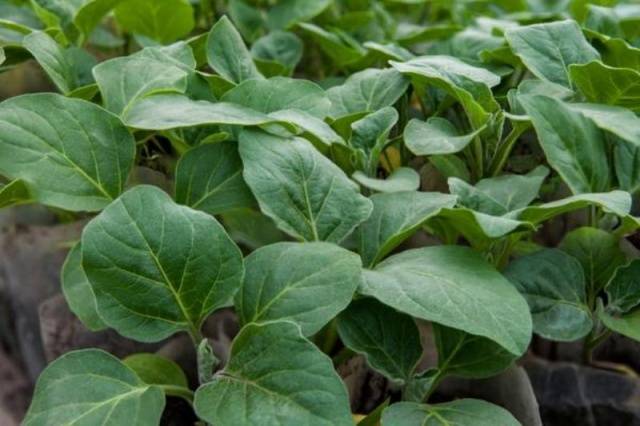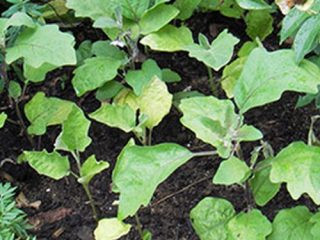Content
This eggplant variety is an early-ripening hybrid and is characterized by high yield. It begins to bear fruit 90-100 days after planting the seedlings. It can be grown both in a greenhouse and in open ground. With proper planting and appropriate care, 1 sq. m you can get up to 7-8 kg of fruit.
Description of the variety Purple Miracle
The purple miracle is distinguished primarily by its taste. The pulp of this eggplant lacks the bitterness characteristic of other types of this crop. This property does not depend on their growing conditions.
Eggplant fruits are smooth and shiny, evenly cylindrical in shape, without thorns on the cup. The peel is dark purple. Ripe eggplants retain their taste and presentation well during transportation and long-term storage. The Violet Miracle has received well-deserved recognition in cooking for its soft green, tender flesh.
It is used not only for preparing caviar, but also for home canning - during heat treatment, the eggplant pulp retains its cut shape well.
The main conditions for good growth and fruiting are sufficient light and moisture. Before fruiting, it is recommended to apply mineral fertilizers to the soil. Planting density - no more than 4-6 bushes per square meter. m. During the growth process, a compact bush is formed up to 90 cm in height with short and dense side shoots.
Growing eggplants in open ground
Among the factors that influence the growth of a plant and its productivity, the place where it is planted is of great importance. You need to choose a sunny and clean area. The growth of eggplants also depends on the “predecessor” plants. It’s good if greens, melons or legumes used to grow in this place. But various types of nightshade plants (tobacco, pepper, potatoes) deplete the soil, so the next planting will give good results no earlier than in two years. For the same reason, eggplants are not planted in the same place where they were grown last year.
Soil preparation
Preparation of beds for eggplants begins in the fall. Organic and mineral fertilizers are evenly distributed on the ground and dug up.
During the autumn-winter period, under the influence of precipitation, fertilizers will go to the optimal depth, so digging must be repeated in the spring. Digging up a bed for eggplants in spring is best done after all the precipitation has disappeared, when the weather has stabilized and the earth has warmed up a little.
For these plants, beds are made 60-70 cm wide, with a furrow for watering between the rows.
Preparing seedlings
They are sown in pots or special plastic containers for seedlings, where each plant has a separate compartment.Seeds for seedlings need to be checked for germination. To do this, they are filled with water for several hours. Empty seeds will remain on the surface and can be safely thrown away. Those seeds that have fallen to the bottom are laid out on damp gauze folded in several layers and put in a warm place for 5-6 days, periodically spraying them with a spray bottle.
The soil for seedlings must be heated and disinfected. To do this, you can bake it in the oven.
Sprouted eggplant seeds are sown in the ground to a depth of 2-3 cm, watered and covered with film. 3-4 seeds are planted in each compartment or cup. After germination, weak shoots are carefully pinched off. Now you can prepare a solution for feeding seedlings. A glass of black tea is poured with 3 liters of boiling water, eggshells are added and left to steep for at least 6 days.
A week later, as soon as the first shoots appear, the film must be removed and the container with seedlings placed in a well-lit place. Now you need to periodically water the sprouts with prepared fertilizer and monitor the plants. For uniform growth and development of the eggplant root system, you need to periodically turn the box with seedlings in the direction against which the sprouts stretch.
Hardening of seedlings
Eggplants begin to harden a month before planting. To do this, the box or pots with seedlings are taken out into the open air during the warm part of the day. To protect against diseases, eggplant seedlings are treated with a weak solution of copper sulfate.
Plants are planted in prepared beds in early June. By that time, subject to proper care, strong, healthy and stable seedlings with dense stems and 10-12 leaves will have formed.
On the day of planting seedlings, in the morning you need to make holes along the edges of the beds at a distance of 40-45 cm from each other. Then fill them with water and a nutrient solution and leave until evening. The ideal time to plant is just after sunset. The box or pots with seedlings are filled with water, and the plant is carefully removed along with the lump of earth. Then they carefully place the plant in the hole, pour water, and cover it with earth on all sides, carefully compacting it. On the first day, you should not plant all the seedlings in the garden bed. You need to leave a few in stock to replace those that die during transplantation.
Eggplant seedlings have a hard time getting used to new conditions, so when the sun rises you can often see plants with drooping tops in the garden. It is possible to determine which of them have taken root in the new place and which have not, already on the second day after transplantation - the stem of the dead plant lies completely on the ground. Such sprouts must be replaced immediately.
Plant care
During the growth period, caring for eggplants comes down to simple actions - watering, fertilizing and weeding. The first time after transplanting into open ground, the plants are watered “under the root,” systematically loosening the soil around the stem. When they are sufficiently strong, water is released into furrows or ditches between the rows.
Eggplants do not tolerate proximity weed, so weeding is mandatory. Pulling weeds around plants further loosens the soil and saturates it with oxygen.
For additional feeding, fertilizer is poured into the furrows before each watering. This must be done before the fruits appear on the plants.
Mullein solution and “Humate” stimulate the growth of eggplants well.
Eggplant is a plant that is often attacked by pests, including white and green aphids, spider mite, Colorado beetle. It is necessary to periodically inspect the plants and spray them with a soap and tobacco solution. A description of these and other secrets of growing eggplant seedlings can be seen in this video:


